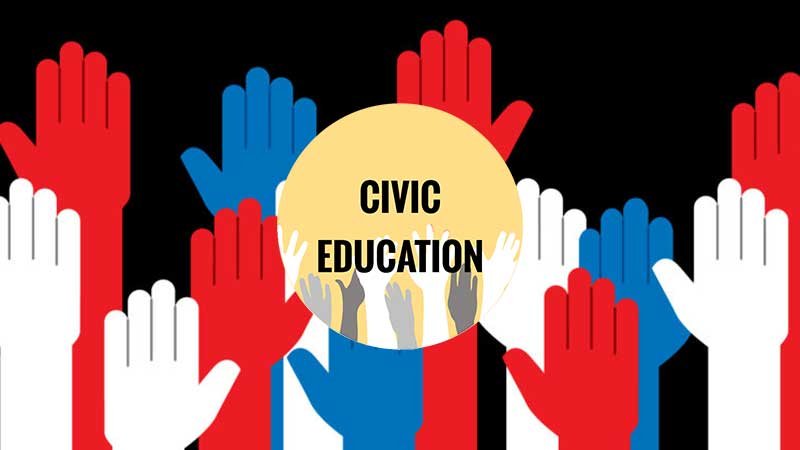Summary: In this Article, you’ll get to read about —
Despite its huge importance for the development of our society, the concept of civics education is still not so clear to many people. This is not something we are typically taught in schools. But that’s in vain.
If you are reading this to collect data for your next essay, DoMyEssay has you covered! With this essay writing service by your side, you can save plenty of time and get high grades without hassle. But, if you are determined to discover the role of civics education in today’s world yourself, read on, and we will tell you everything you need to know about it.
What is Civics Education?
Before we can move on and share with you the strategies for boosting civics education, it is vital that we get clear on the definition first.
So, what is civics education? In a nutshell, it is a discipline that studies political, theoretical, and practical aspects of citizenship, also covering the duties and rights of citizens. This subject area covers a wide variety of related topics, including the study of government, the role of citizens within a specific government, civil law, civil codes, and similar topics.
Although there is no such subject as civics education in many schools and colleges, this area is often covered in other subjects. Students are often assigned to conduct research or write academic papers on the topics included in this study area. If that’s the case, keep in mind that there are many professional “write my essay for me” services to which you can delegate your assignments and get a high grade with ease.
Why Does It Matter?
At its core, civics education strives to teach learners about participation in society and politics, as well as in neighborhoods, organizations, groups, and even classrooms. This subject area studies the processes and challenges facing citizens in all aspects of social life and teaches us how to contribute to our societies and improve them. This subject also discovers the most important civic practices, such as volunteering, jury service, voting, etc.
By bringing civics education to schools, we can help students become active, conscious, and well-informed citizens of their countries. We can teach them how to participate actively in their societies.
Apart from this, in the course of providing thorough civics education, schools can teach students about federal, state, and local law and help them grasp the core ideas of democracy. And thus, equip them for being active citizens and contributing to making our world a better place.
Also, Read: Why You Don’t Make the Grade: 8 Reasons and How to Avoid Them
3 Ways to Incorporate Civics Education into the Curriculum
Now that you know what civics education is and why it is so important to foster it in schools, let’s look at the best and most effective strategies that can help us incorporate this subject into the curriculum.
Create Relevant Civics Projects
The first strategy that can be used to boost civics education in schools implies integrating authentic civics projects into the curriculum. When participating in action civics projects, students examine local and global community issues, engage in civic action, and, thus, expand their own knowledge and skills related to this subject area.
The biggest benefit of this strategy is that it doesn’t just teach students about what it means to be a citizen. In fact, by engaging them in various community projects, we help them become active citizens.
The opportunities for creating such projects are vast. First of all, teachers and schools can come up with their own community projects and encourage students to participate. But if that seems to be too much work, there is also another way to make this real. Teachers can join local and federal organizations like Project Citizen, Earth Force, or Generation Citizen and participate in their initiatives together with their class. Either way, it will be a great way to boost civics education.
Encourage Civil Discourse
Civil discourse has always been considered one of the key means for working out problems and differences peacefully in a democratic society. However, Pew Research has found that civil discourse is now on a decrease as 45% of people now tend to avoid challenging conversations instead of using them as a solution to daily problems.
The same tendency is being observed in schools. According to studies, teachers have long been tending to avoid controversial civil topics in classrooms. But, this needs to be changed.
To boost civics education, teachers should strive to foster civil discourse in classrooms. However, it should be done wisely.
To make the most of civil discourse, teachers can use one of the following tactics:
- Engage in online discussions with their class;
- Leverage dialogues instead of debates.
Leverage Available Resources
Finally, one more tip for boosting civics education in schools is leveraging available resources to build up students’ engagement.
There is no need to say that studying civics topics can be rather boring. Due to this reason, students rarely get genuinely interested in civics education. However, there is a way to get them engaged.
Today, there are plenty of unique and truly engaging resources, such as simulations, games, competitions, and more. Such resources can really help us take civics education to the next level. So, for a teacher, it is vital to leverage all available resources to help students succeed.
Namely, some of the best resources that we can recommend include:
- Games for Change;
- iCivics;
- Informable;
- We the People Competition;
- Kidizenship;
- Generation Citizen’s Civics Day;
- The Stanford History Education Group’s Civic Online Reasoning.
Conclusion
These resources, mixed with the strategies we shared with you here, can help teachers and schools boost civics education. Feel free to use them to help your students become active and well-informed citizens!
Next, can read about: Student Exchanges: What’s Important and What You Need to Know



